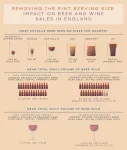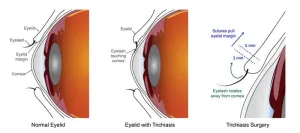(Press-News.org) SAN ANTONIO, Sept. 17, 2024 – In landmark research, scientists at The University of Texas Health Science Center at San Antonio (UT Health San Antonio) have reported the largest-ever genome-wide association study of dementia from all causes, revealing an overlap of genetic risks including neurodegeneration, vascular factors and cerebral small-vessel disease.
Genome-wide association studies help scientists identify genes associated with a particular disease or trait by exploring the entire set of DNA, or genome, of a large group of people – in this case, a dataset of 800,597 individuals, with 46,902 and 8,702 cases of all-cause dementia and vascular dementia, respectively.
“Dementia is a multifactorial disease with Alzheimer’s disease and vascular dementia pathologies making the largest contributions – and yet, most genome-wide association studies focus just on Alzheimer’s disease,” said Bernard Fongang, PhD, with the Glenn Biggs Institute for Alzheimer’s and Neurodegenerative Diseases at UT Health San Antonio. “We conducted such a study of all-cause dementia and discovered a substantial genetic overlap with vascular dementia.”
Fongang, who also is with the departments of biochemistry and structural biology, and population health sciences, at the Joe R. and Teresa Lozano Long School of Medicine at UT Health San Antonio, is corresponding contact for the study titled, “A genome-wide association meta-analysis of all-cause and vascular dementia,” published July 24 by Alzheimer’s & Dementia: The Journal of the Alzheimer’s Association. The study author is credited as the Mega Vascular Cognitive Impairment and Dementia (MEGAVCID) consortium, which is an international consortium of cohorts focusing on the genetics of vascular cognitive impairment and dementia.
Two clinically distinct dementias
According to the study, Alzheimer’s disease traditionally is considered the most common dementia subtype, followed by vascular dementia. The two conditions are clinically distinct, however.
Vascular dementia is diagnosed based on the presence of stroke or extensive cerebral vascular disease, with atherosclerosis and arteriolosclerosis considered the underlying pathologies. But a wealth of evidence from recent years has emphasized a broad role for brain vascular damage as a major mechanism for cognitive impairment.
It now is increasingly recognized that a component of vascular pathology is prominent in all major dementias and acts synergistically with amyloid beta, tau and other neurodegenerative pathologies to affect dementia risk, the study notes.
Because most genome-wide association studies have focused on Alzheimer’s disease, highlighting multiple genetic risk variants, Fongang’s team conducted such a study of all-cause dementia and examined the genetic overlap with vascular dementia.
Its vast dataset drew from individuals comprising the Cohorts for Heart and Aging Research in Genomic Epidemiology (CHARGE), the Alzheimer’s Disease Genetics Consortium (ADGC), the European Alzheimer Disease Biobank (EADB) and the UK Biobank (UKBB), encompassing four different reported ancestries: European (98.5%), African (1.0%), Asian (0.4%) and Hispanics/Latino (0.1%).
Known genetic variants associated with Alzheimer’s disease were replicated for all-cause dementia and vascular dementia. Functional analysis revealed the overlap of genetic risks of all-cause dementia with neurodegeneration, vascular risk factors such as hypertension and diabetes, and cerebral small vessel disease.
Essentially, known genetic variants for Alzheimer’s disease were identified as risk factors for all-cause dementia and vascular dementia.
“Our findings expand the current knowledge base of dementia genetics by focusing on both all-cause dementia and vascular dementia,” Fongang said. “We identified several putative genetic variants and biological pathways associated with all-cause dementia and vascular dementia, and added additional support for the involvement of vascular mechanisms in dementia pathogenesis.”
The study concluded that the results should be validated in additional datasets including non-European individuals. UT Health San Antonio is the largest academic research institution in South Texas, with an annual research portfolio of $413 million.
A genome-wide association meta-analysis of all-cause and vascular dementia
Mega Vascular Cognitive Impairment and Dementia (MEGAVCID) consortium
First published: July 24, 2024, Alzheimer’s & Dementia: The Journal of the Alzheimer’s Association
Link to full study: https://alz-journals.onlinelibrary.wiley.com/doi/full/10.1002/alz.14115
The University of Texas Health Science Center at San Antonio (UT Health San Antonio), a primary driver of San Antonio’s $44.1 billion health care and biosciences sector, is the largest academic research institution in South Texas with an annual research portfolio of $413 million. Driving substantial economic impact with its six professional schools, a diverse workforce of more than 8,500, an annual expense budget of $1.46 billion and clinical practices that provide 2.6 million patient visits each year, UT Health San Antonio plans to add more than 1,500 higher-wage jobs over the next five years to serve San Antonio, Bexar County and South Texas. To learn about the many ways “We make lives better®,” visit UTHealthSA.org.
The Glenn Biggs Institute for Alzheimer’s and Neurodegenerative Diseases is dedicated to providing comprehensive dementia care while advancing treatment through clinical trials and research. The Biggs Institute is a National Institute on Aging (NIA)-designated Alzheimer’s Disease Research Center (ADRC). In addition to patient care and research, the Biggs Institute partners with the School of Nursing at UT Health Science Center San Antonio to offer the Caring for the Caregiver program.
The UT Health San Antonio Joe R. and Teresa Lozano Long School of Medicine is listed among U.S. News & World Report’s best medical schools, ranking in the top 30% nationwide for research. To learn more, visit https://uthscsa.edu/medicine/.
Stay connected with The University of Texas Health Science Center at San Antonio on Facebook, Twitter, LinkedIn, Instagram and YouTube.
END
University of Maryland School of Medicine (UMSOM) Dean Mark T. Gladwin, MD, has announced the formation of a new Department of Pharmacology, Physiology and Drug Development, which merges the Department of Physiology and Department of Pharmacology. This new Department aligns the basic science research efforts of both entities with a strong emphasis on the development of new drug therapies.
The Department will host three divisions spanning Cancer Therapeutics, Molecular Physiology, and Neuropharmacology, creating additional opportunities for research partnerships across current UMSOM Centers, ...
Big data and artificial intelligence are transforming how we think about health, from detecting diseases and spotting patterns to predicting outcomes and speeding up response times.
In a new study analyzing two million Google Street View images from New York City streets, a team of New York University researchers evaluated the utility of this digital data in informing public health decision-making. Their findings, published in the Proceedings of the National Academy of Sciences (PNAS), show how relying on street view images alone may lead ...
NEWPORT NEWS, VA – Deep inside what we perceive as solid matter, the landscape is anything but stationary. The interior of the building blocks of the atom’s nucleus — particles called hadrons that a high school student would recognize as protons and neutrons — are made up of a seething mixture of interacting quarks and gluons, known collectively as partons.
A group of physicists has now come together to map out these partons and disentangle how they interact to form hadrons. Based at the U.S. Department of Energy’s Thomas Jefferson National Accelerator Facility and known as the HadStruc Collaboration, these ...
Patients want providers to reach out early and often to ask about financial needs
First study seeking cancer patient input on how they want to be screened
Findings show how to best deploy policies to screen cancer patients for financial concerns
CHICAGO --- Patients with cancer want their care team to assess them early in treatment about their concerns related to costs of care, reports a Northwestern Medicine study. It is the first time a study has sought cancer patients’ input on how they want to be screened for financial needs.
The financial impact of treatment, referred to as financial toxicity, includes direct costs, such as how much ...
Breast cancer is the most diagnosed cancer among U.S. women and the second leading cause of cancer death. Black women who develop breast cancer are around 40% more likely to die of the disease than white women, but it was unclear until now whether this disparity exists across all types of breast cancer. Now, a meta-analysis led by Mass General Brigham researchers shows that Black women have a higher risk of dying from breast cancer for all tumor subtypes, and the size of this disparity varies from 17-50% depending on the type of breast cancer.
These findings, ...
In May, a major cyberattack disabled clinical operations for nearly a month at Ascension, a health care provider that includes 140 hospitals across the U.S. Investigators tracked the problem to malicious ransomware that had infected an employee’s computer.
Health care systems offer juicy targets for cybercrime because of the valuable personal, financial, and health data they hold. A 2023 survey of health information technology and IT security professionals reported that 88% of ...
Integral Molecular, a leader in antibody discovery and characterization, has published new research in the journal mAbs, revealing that as many as one-third of antibody-based drugs exhibit nonspecific binding to unintended targets. A serious concern, off-target drug binding is a significant cause of adverse events in patients, with the potential to even cause death. Analysis of antibody off-target binding across different phases of clinical development suggests this to be a major cause of drug attrition. Early specificity testing could improve drug approvals and patient safety.
Learn how antibody developers can use the Membrane Proteome Array™ to assess specificity ...
Reducing the serving size for beer, lager and cider reduces the volume of those drinks consumed in pubs, bars and restaurants, and could be a useful alcohol control measure, according to research published September 17th in the open-access journal PLOS Medicine. Theresa Marteau and colleagues at the University of Cambridge, UK, found that over a short intervention period, venues that removed the pint and offered two third pints instead, sold 10% less beer by volume compared with when pints were available.
When wine by the glass is offered in smaller servings, the amount sold ...
Lower socioeconomic status is associated with higher rates of death from coronary artery disease compared to higher socioeconomic status, and more than half of the disparities can be explained by four unhealthy behaviors. Dr. Yachen Zhu of the Alcohol Research Group, U.S., and Dr. Charlotte Probst of the Centre for Addiction and Mental Health, Canada, report these findings in a new study published September 17th in the open-access journal PLOS Medicine.
Coronary artery disease, also known as coronary heart disease or ischemic heart disease, occurs when the arteries supplying the heart cannot deliver enough oxygen-rich blood due to plaque buildup, and is a major cause of death in the ...
Trachomatous trichiasis, a potentially blinding condition where inward-turned eyelashes scratch the front of the eye, can successfully be treated by either of the two most common types of eyelid surgery, according to findings from a large comparison trial funded by the National Institutes of Health. In light of previous, smaller studies, which suggested that one of the commonly used surgery types had poorer outcomes, this study provides reassurance that either technique can treat the condition. The study, published in PLOS Neglected ...





